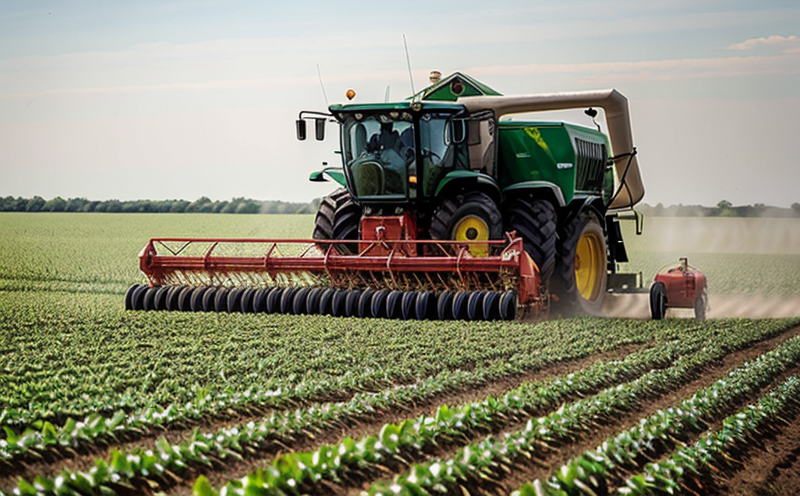Potassium Use Efficiency Testing
Understanding and enhancing potassium use efficiency (KUE) is critical to optimizing crop productivity in agriculture. Potassium plays a vital role in plant growth, water regulation, and disease resistance. Efficient KUE ensures that crops absorb the necessary amount of potassium without wastage, leading to higher yields and improved resource management.
The testing process for KUE involves several steps, including soil sampling, nutrient analysis, application rates, and yield measurement. This service provides comprehensive insights into how effectively potassium is being utilized by plants under specific conditions. By conducting this test, farmers can make informed decisions about the amount of potassium to apply, ensuring optimal crop health and productivity.
Our laboratory employs advanced analytical techniques to assess KUE, using a combination of soil testing, leaf tissue analysis, and yield evaluation. Soil samples are analyzed for their potassium content, while leaf tissue is examined to determine the concentration of potassium in the plant. Yield data is collected post-harvest to correlate with nutrient uptake.
Through this service, we aim to help our clients achieve better crop performance by identifying areas where KUE can be improved. This includes recommending optimal application rates and types of fertilizers that enhance KUE without causing environmental harm. Our expertise ensures that the testing process is rigorous and reliable, providing actionable insights for sustainable agricultural practices.
The importance of KUE extends beyond just enhancing crop yields; it also contributes to more efficient use of resources, reducing costs for farmers while minimizing environmental impact. By optimizing potassium application, we help clients achieve a balance between yield enhancement and resource conservation.
Applied Standards
| Standard | Description |
|---|---|
| ISO 17025 | Laboratory accreditation standard ensuring quality and competence. |
| ASTM D3698-14 | Standard test method for determination of potassium in soil by flame atomic absorption spectrophotometry (FAAS). |
| EN ISO 20757-1:2013 | Harmonized standard for the measurement of potassium content in plant tissues. |
Scope and Methodology
The scope of our KUE testing service includes comprehensive soil, leaf tissue, and yield analysis. Soil samples are collected from various locations within the field to ensure a representative sample set is analyzed. The method involves determining the potassium content in both soil and plant tissues using flame atomic absorption spectrophotometry (FAAS). Yield data is collected through standard harvest methods, ensuring accurate measurement.
The methodology also includes identifying the optimal application rates of potassium fertilizers based on the test results. This ensures that farmers can apply just enough potassium to meet the crop's needs without excess, which can lead to increased costs and environmental issues. Our testing process is designed to be thorough yet efficient, providing clients with clear, actionable recommendations.
Our laboratory uses state-of-the-art equipment for all analyses, including FAAS spectrophotometers, spectrometers, and data analysis software. These tools ensure precise measurement of potassium levels in soil and plant tissues. The process also involves statistical analysis to identify trends and correlations between nutrient application rates and yield.
Industry Applications
- Farmers seeking to optimize their use of potassium fertilizers for better crop yields and resource efficiency.
- Agricultural researchers looking to understand the relationship between potassium application rates and plant growth.
- Environmental consultants assessing the impact of potassium use on soil health and water quality.
- Purchase departments evaluating suppliers of potassium fertilizers for their effectiveness and environmental friendliness.





